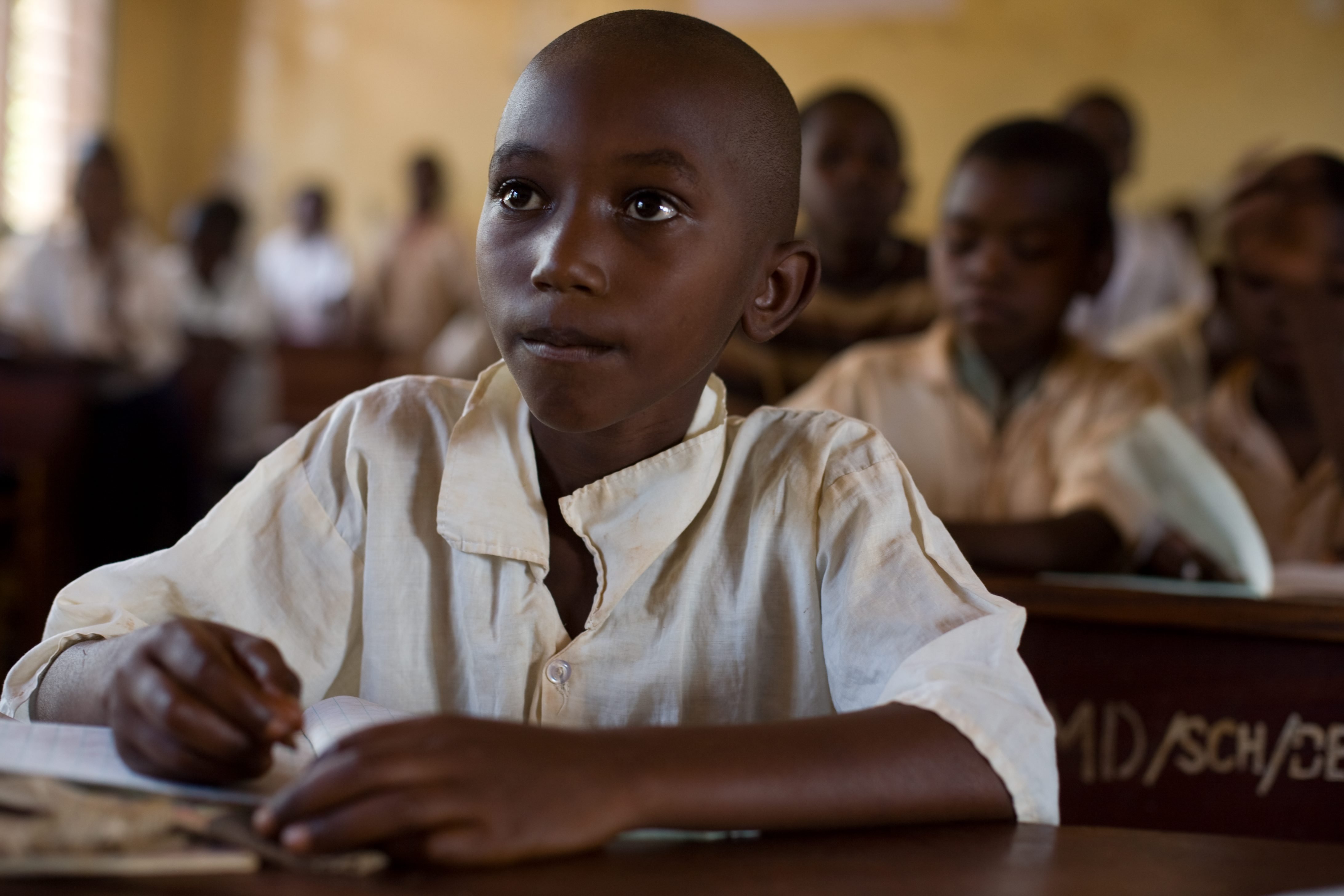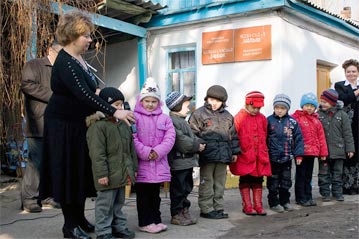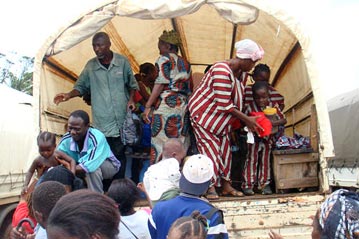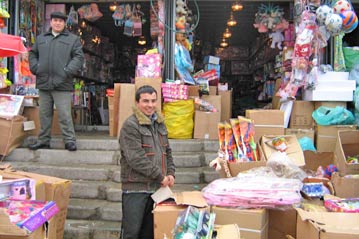African Union team finds Togolese refugees well integrated in Ghana
African Union team finds Togolese refugees well integrated in Ghana

ACCRA, Ghana, May 26 (UNHCR) - A high-level African Union mission to assess the situation of Togolese refugees in Ghana has found the recent arrivals living harmoniously among the local community in the border area.
The three-person delegation ended their three-day mission to Ghana yesterday after meeting officials from the Ghanaian government, UNHCR and other agencies. The AU delegates included Ambassador Al-Maamoun Baba Lamine Keita of Mali, Ambassador M.W. Mangachi of Tanzania, and Macrine Mayanja of the AU Commission's Humanitarian Affairs, Refugees and Displaced Persons Division.
The team showed the AU's solidarity with Ghana's government and refugee-hosting communities by presenting a cheque for US$30,000 to the Ministry of Interior to assist with the refugee programme.
Accompanied by UNHCR, the delegates went on a field mission to Aflao, a Ghanaian border town near Togolese capital Lomé, to meet the refugees and host communities. They were warmly welcomed by the Paramount Chief of Aflao traditional area, Togbui Amenya Fiti V, whose jurisdiction transcends into Togo, including parts of western Lomé.
The Paramount Chief appealed to the international community, through the AU, to put measures in place in Togo to ensure sustainable peace.
"We are appealing to the big men and organisations to help solve the problem in Togo," said Togbui Amenya Fiti V. "When there is peace in Togo, there is peace in Aflao. Aflao is a melting pot for regional trade in West Africa. We have all ethnic groups here. The group outside the palace today is a representation of the 1,600 Malians in Aflao. They are here to welcome His Excellency, Ambassador Keita."
The delegates stressed the importance of efforts being made by the AU and ECOWAS (the Economic Community of West African States) to find a political solution so that the Togolese refugees could return home as soon as possible.
In the meantime, their hosts in Ghana are trying their best to make the refugees feel at home. "We speak the same language. They are our neighbours so it is a matter of course that we have to accommodate them. They would have done the same," said Togbui Amenya Fiti V.
At a press conference in Accra on Wednesday, the AU delegation expressed amazement at the unique nature of this particular hosting situation.
"The refugees are well integrated into the community and the few that we saw in a school building were in transit, waiting to join host families," observed Tanzanian Ambassador Mangachi. "This is very much in the spirit of the OAU Refugee Convention of 1969. This situation, where the local community is supported to host the refugees, is very unique and particularly humane."
UNHCR Representative in Ghana Thomas Albrecht agreed: "It is easier to provide assistance when the refugee population is in camps, but ultimately worse for them. Camps are never the ideal, they are a last resort. The ideal is to provide refugees with an opportunity to have as close to a normal life as possible. Being integrated in the local communities, with all its challenges, is the best option."
The Togolese refugees have received emergency assistance - food and relief items - from the Ghanaian government, UNHCR and partners like the World Food Programme. Recognising the strain of hosting more than 15,000 refugees, the agencies are working to support and strengthen existing services in the Aflao region, especially in the areas of health, sanitation and potable water.
By Needa Jehu-Hoyah
UNHCR Ghana








